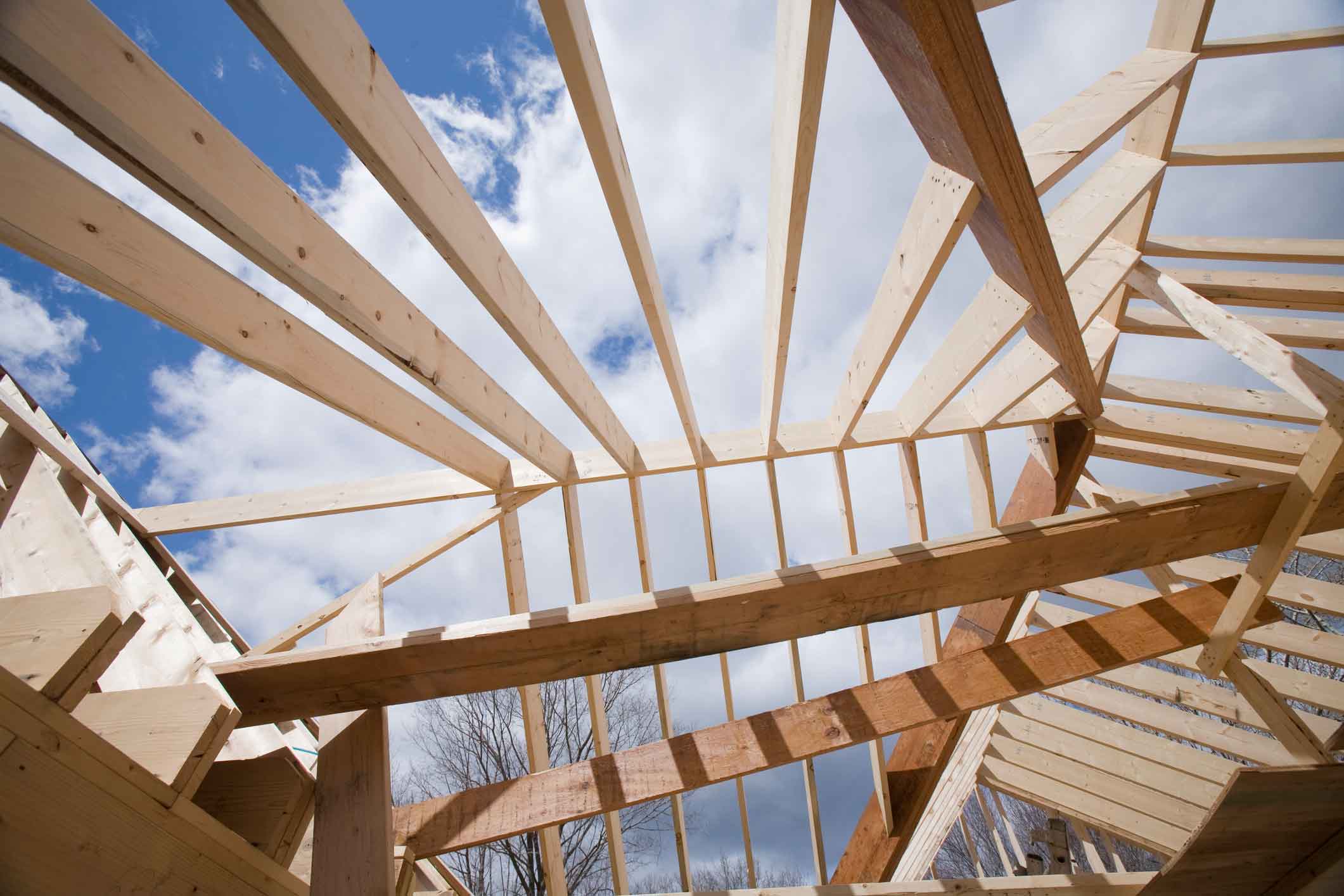A Housing Shortage Looms: Builders Can’t Keep Up
Starter homes especially are becoming scarce.

Profit and prosper with the best of Kiplinger's advice on investing, taxes, retirement, personal finance and much more. Delivered daily. Enter your email in the box and click Sign Me Up.
You are now subscribed
Your newsletter sign-up was successful
Want to add more newsletters?

Delivered daily
Kiplinger Today
Profit and prosper with the best of Kiplinger's advice on investing, taxes, retirement, personal finance and much more delivered daily. Smart money moves start here.

Sent five days a week
Kiplinger A Step Ahead
Get practical help to make better financial decisions in your everyday life, from spending to savings on top deals.

Delivered daily
Kiplinger Closing Bell
Get today's biggest financial and investing headlines delivered to your inbox every day the U.S. stock market is open.

Sent twice a week
Kiplinger Adviser Intel
Financial pros across the country share best practices and fresh tactics to preserve and grow your wealth.

Delivered weekly
Kiplinger Tax Tips
Trim your federal and state tax bills with practical tax-planning and tax-cutting strategies.

Sent twice a week
Kiplinger Retirement Tips
Your twice-a-week guide to planning and enjoying a financially secure and richly rewarding retirement

Sent bimonthly.
Kiplinger Adviser Angle
Insights for advisers, wealth managers and other financial professionals.

Sent twice a week
Kiplinger Investing Weekly
Your twice-a-week roundup of promising stocks, funds, companies and industries you should consider, ones you should avoid, and why.

Sent weekly for six weeks
Kiplinger Invest for Retirement
Your step-by-step six-part series on how to invest for retirement, from devising a successful strategy to exactly which investments to choose.
The housing market looks OK at first glance. Home values are up sharply from the Great Recession, builders are busy, and home sales are on the upswing. But this market is a long way from normal. And it will be years before normality returns.
The basic problem plaguing the industry: Too much demand and not enough supply. The pool of would-be homeowners has been growing at a steady clip in recent years. Low mortgage rates and an improving job market are giving more folks the means to buy their first home. But building fell during the bust that followed the housing bubble of the mid-2000s and hasn’t caught up since then.
Thus, the market is tight and getting tighter. New construction is growing at an annual clip of 10% and will continue at that pace for the next few years. But even that won’t be enough to return construction to a healthy, pre-bubble level of starts anytime soon.
From just $107.88 $24.99 for Kiplinger Personal Finance
Become a smarter, better informed investor. Subscribe from just $107.88 $24.99, plus get up to 4 Special Issues

Sign up for Kiplinger’s Free Newsletters
Profit and prosper with the best of expert advice on investing, taxes, retirement, personal finance and more - straight to your e-mail.
Profit and prosper with the best of expert advice - straight to your e-mail.
Many would-be sellers are holding off now, opting to stay put and fix up their current homes rather than taking their chances on finding a new place when the pickings are slim and demand is strong. That will further constrain supply. But it bodes well for home improvement stores that sell all the remodeling stuff.
Builders want to ramp up the construction of new homes, but they can’t. Credit will remain hard to get because banks are reluctant to finance construction unless the homes are presold. They’ve been burned before by such loans going bad. New regulations stemming from the Basel III global banking standards require banks to hold more capital against possible losses, which also makes them less eager to lend.
Moreover, builders face a dearth of skilled craftsmen — the result of droves of workers leaving the building trades during the prolonged housing bust from 2006 to 2011. There’s also a shortage of buildable land and lots. Paul Emrath of the National Association of Home Builders says the shortage is the worst he’s ever seen.
The result: inventories of homes for sale will shrink even more in most areas of the U.S. Inventory is already down by at least 10% in most cities and by 30% or more in the hottest markets, such as Charlotte, N.C., and Salt Lake City. In parts of California, the crunch is so bad that sales are starting to slip — a trend that will spread elsewhere. Prices will push higher, the inevitable consequence of such limited inventory coupled with strong demand. Figure on the median home price growing by 6% or so each year over the next couple of years, versus the current annual pace of about 5%.
First-time buyers will continue to struggle to find homes they can afford. Builders’ credit constraints, rising land costs and the shortage of skilled workers make building low-prices starter homes uneconomical. Instead, most new construction will cater to the higher end of the market. Existing starter homes will be hot sellers.
In a market this tight, more folks will ultimately have to rent instead of buy, a plus for landlords but a handicap for young adults looking to snag their first home and build equity as their parents did — a financial headwind for an entire generation.
Profit and prosper with the best of Kiplinger's advice on investing, taxes, retirement, personal finance and much more. Delivered daily. Enter your email in the box and click Sign Me Up.

David is both staff economist and reporter for The Kiplinger Letter, overseeing Kiplinger forecasts for the U.S. and world economies. Previously, he was senior principal economist in the Center for Forecasting and Modeling at IHS/GlobalInsight, and an economist in the Chief Economist's Office of the U.S. Department of Commerce. David has co-written weekly reports on economic conditions since 1992, and has forecasted GDP and its components since 1995, beating the Blue Chip Indicators forecasts two-thirds of the time. David is a Certified Business Economist as recognized by the National Association for Business Economics. He has two master's degrees and is ABD in economics from the University of North Carolina at Chapel Hill.
-
 How Much It Costs to Host a Super Bowl Party in 2026
How Much It Costs to Host a Super Bowl Party in 2026Hosting a Super Bowl party in 2026 could cost you. Here's a breakdown of food, drink and entertainment costs — plus ways to save.
-
 3 Reasons to Use a 5-Year CD As You Approach Retirement
3 Reasons to Use a 5-Year CD As You Approach RetirementA five-year CD can help you reach other milestones as you approach retirement.
-
 Your Adult Kids Are Doing Fine. Is It Time To Spend Some of Their Inheritance?
Your Adult Kids Are Doing Fine. Is It Time To Spend Some of Their Inheritance?If your kids are successful, do they need an inheritance? Ask yourself these four questions before passing down another dollar.
-
 U.S. Manufacturing Is Already Ailing from Coronavirus
U.S. Manufacturing Is Already Ailing from CoronavirusEconomic Forecasts Supplies are hard to come by, and in the longer-term demand may be at risk.
-
 Will You Have to Pay More Sales Taxes on Your Online Purchases?
Will You Have to Pay More Sales Taxes on Your Online Purchases?business One thing’s for sure: Consumers who live in one of the five states without a sales tax won’t be affected by the Supreme Court’s ruling.
-
 What to Expect From the New Fed Chief
What to Expect From the New Fed ChiefEconomic Forecasts By and large, Jerome Powell will move along the path set by his predecessor.
-
 How a Border Tax Would Affect You
How a Border Tax Would Affect YouBusiness Costs & Regulation A plan to limit imports could raise prices but also create more jobs.
-
 Help Wanted in America: Skilled Workers
Help Wanted in America: Skilled WorkersTechnology In an ever-more-competitive job market, technology increases the need for skilled workers.
-
 The Unintended Consequences of a Boost in Overtime Pay
The Unintended Consequences of a Boost in Overtime PayBusiness Costs & Regulation New rules mean millions more employees will be overtime-eligible. But will employers find workarounds?
-
 U.S. Economy to Perk Up in Second Half
U.S. Economy to Perk Up in Second HalfEconomic Forecasts Consumers are recovering from a swoon induced by a wobbly stock market. But energy, other sectors will continue to struggle.
-
 Improving Prospects for Most Small Businesses
Improving Prospects for Most Small Businessesbusiness Firms in the housing and tourism sectors can prosper as home sales surge and low gas prices encourage more travel.

